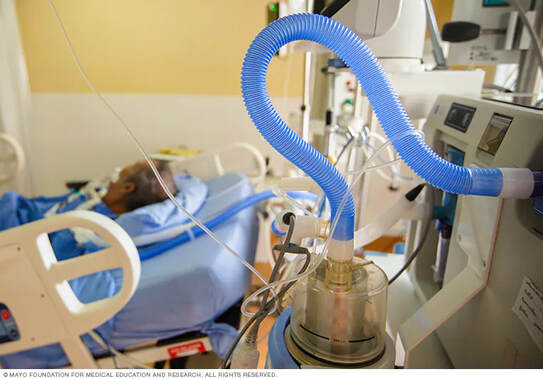
Patient Centered Sedation Outcomes in Mechanically Ventilated Non-Trauma Patients
Mechanical ventilation is at times required when patients are hospitalized for problems relating to breathing. This process requires being intubated in which a breathing tube is placed through a patient’s airway and then connected to a ventilator. Due to the tube placement and the various sedative medications that a patient typically receives, it has been found that there is difficulty in patient-provider communications as a result of the blocked vocal pathway. As a result, patients struggle or are unable to communicate their needs, their comfort level, and any other verbal indications. This state of inability to relay their needs can cause mental distress, particularly if the individual is intubated for over 24 hours.
The purpose of our study is to assess the degree of discomfort experienced by patients while intubated under mechanical ventilation. We aim to find individuals who have been placed on the ventilator for at least 24 hours and have been extubated for no more than 48 hours. This is to ensure that the patients were intubated for sufficient time and extubated recently enough that they can recall their experience. Upon screening and qualifying for the study, our members locate and interview patients to gather information regarding their experience.
This study has a follow-up portion in which individuals are called 90 days after their discharge from UMMC to determine how well they return to usual activities since being intubated under mechanical ventilation. We utilize the Extended Glasgow Outcome Scale (GOS-E) to quantify this.
We plan to recruit 100 non-trauma patients requiring mechanical ventilation who have been admitted to the Surgical Intensive Care Unit (SICU) at the University of Maryland Medical Center (UMMC).
Mechanical ventilation is at times required when patients are hospitalized for problems relating to breathing. This process requires being intubated in which a breathing tube is placed through a patient’s airway and then connected to a ventilator. Due to the tube placement and the various sedative medications that a patient typically receives, it has been found that there is difficulty in patient-provider communications as a result of the blocked vocal pathway. As a result, patients struggle or are unable to communicate their needs, their comfort level, and any other verbal indications. This state of inability to relay their needs can cause mental distress, particularly if the individual is intubated for over 24 hours.
The purpose of our study is to assess the degree of discomfort experienced by patients while intubated under mechanical ventilation. We aim to find individuals who have been placed on the ventilator for at least 24 hours and have been extubated for no more than 48 hours. This is to ensure that the patients were intubated for sufficient time and extubated recently enough that they can recall their experience. Upon screening and qualifying for the study, our members locate and interview patients to gather information regarding their experience.
This study has a follow-up portion in which individuals are called 90 days after their discharge from UMMC to determine how well they return to usual activities since being intubated under mechanical ventilation. We utilize the Extended Glasgow Outcome Scale (GOS-E) to quantify this.
We plan to recruit 100 non-trauma patients requiring mechanical ventilation who have been admitted to the Surgical Intensive Care Unit (SICU) at the University of Maryland Medical Center (UMMC).
